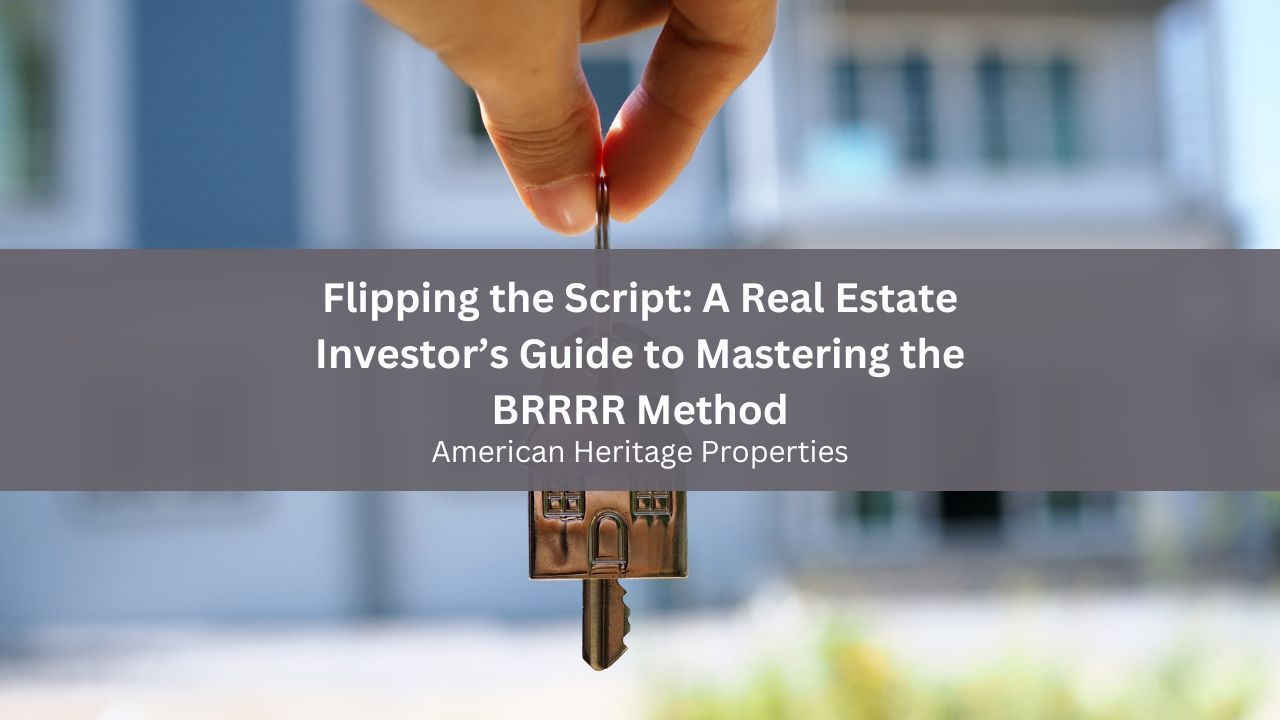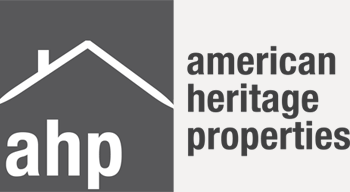
Getting Financially Ready to Purchase a Home!
Getting Financially Ready to Purchase a Home!

Getting Financially Ready to Purchase a Home
If you’ve got debt or lack credit, you may have difficulty getting approved for mortgages and other types of loans because you have limited income and assets. Managing your debt before you begin the home-buying process can make it possible to buy your dream home. Here are some tips from American Heritage Properties to help you get started.
Build Your Credit
Building credit is an essential part of building a financial foundation. It allows you to get loans for major investments, like buying a house. To build your credit, start by opening up new accounts with different companies that offer revolving credit cards. Start with a secured card, which requires you to put down a deposit in order to get the card. Pay off your balance in full every month. Make sure you always pay off your balances in full each month and avoid going into debt by using only what you can afford to spend each month on groceries, utilities, etc.
If you’ve already got credit, you’ll want to pay it down in order to qualify for a mortgage. The most common way to get a handle on your debt before buying a home is to use the snowball method. This method starts with your high-interest debts and works its way down until you have paid them off. When you have paid off all of your high-interest debts, start working on paying off the low-interest ones, like credit cards or loans first before moving on to the larger ones, like car loans.
Make a Budget
A budget can help you stay within your means and save money for your home’s down payment. Creating a budget doesn't have to be difficult, but it does require some planning and commitment.
- Start with your net income
- Track your spending with an app or online software
- Make a goal.
- Follow the 50/30//20 rule. 50% for needs. 30% for wants. 20% for savings
- Make the necessary adjustments.
How Much Will You Need
The down payment for your home will be dependent on the sales price. You should research the market conditions in the area you want to buy first. Next, use an online closing cost calculator to learn how much additional you’ll need if you buy. Closing costs are the costs that go into the process of buying or selling a house. These include real estate agent commissions, title insurance, and other fees that might be associated with closing on a home.
For Business Owners
If you’re a small business owner, you may find it more challenging to get qualified for a home mortgage if you don’t declare your income accurately. Banks usually want to see your tax documents and how much you claimed as income. Make sure to deposit all your business income into a dedicated bank account for your business.
Create an LLC for your business, too, to keep your personal and business assets separate. You can do this online yourself or use a formation agency, which will file everything for you for a small fee. States have different regulations around forming an LLC, so check the rules in your state before moving ahead. If you pay yourself a salary, it’s best to issue yourself a payslip and pay a separate tax for that
For Students
It can be difficult to juggle purchasing a home with successfully completing your coursework, but it can be done! Plus, online programs offer a huge time savings and the ability to complete your classes from anywhere, which means that moving won’t disrupt your semester. And once you have completed your degree, you’ll be in a great position to build your career and grow your income as a homeowner.
Prepare Yourself for Home Ownership
By creating a budget, managing your debt, creating business safeguards like forming an LLC, and understanding just how much you’ll need to purchase your home, you can feel more secure knowing that when it’s time to buy your home, you’ll be ready.
Are you considering buying an historic home or do you have one that you would like to rent out? Then
contact American Heritage Properties!

Contact Us
How can we help you?
Contact Us—Site footer
We will get back to you as soon as possible.
Please try again later.
american heritage properties
CA DRE# 00814073/01209427
9988 Hibert St, STE 300
San Diego, CA 92131
(858) 695-1643
Quick Links
Areas We Serve
Allied Gardens | Bankers Hill |
Bay Park |
Bonita | Cardiff |
Carlsbad |
Carmel Mountain Ranch | Carmel Valley |
Chula Vista | Clairemont | College |
College Grove |
Del Cerro |
Del Mar | Del Sur | Eastlake |
El Cajon |
Encinitas |
Escondido |
Fashion Valley |
Fletcher Hills |
Hillcrest | Kensington | La Costa |
La Jolla |
La Mesa | Lemon Grove | Leucadia | Linda Vista | Kearny Mesa | Mira Mesa | Mission Hills | Mission Valley | Mission Village | Normal Heights | North Park |
Ocean Beach |
Oceanside | Otay Ranch |
Pacific Beach | Paradise Hills | Penasquitos | Point Loma |
Poway |
Rancho Bernardo | Rancho San Diego | Rolando | Sabre Springs |
San Diego | San Carlos | San Elijo Hills |
San Marcos |
Santee | Scripps Ranch | Serra Mesa |
Spring Valley | Solano Beach | Sorrento Valley | Stonecrest Village | Talmadge | Tierrasanta | Torrey Highlands |
University City | University Heights |
Vista | 4S Ranch








